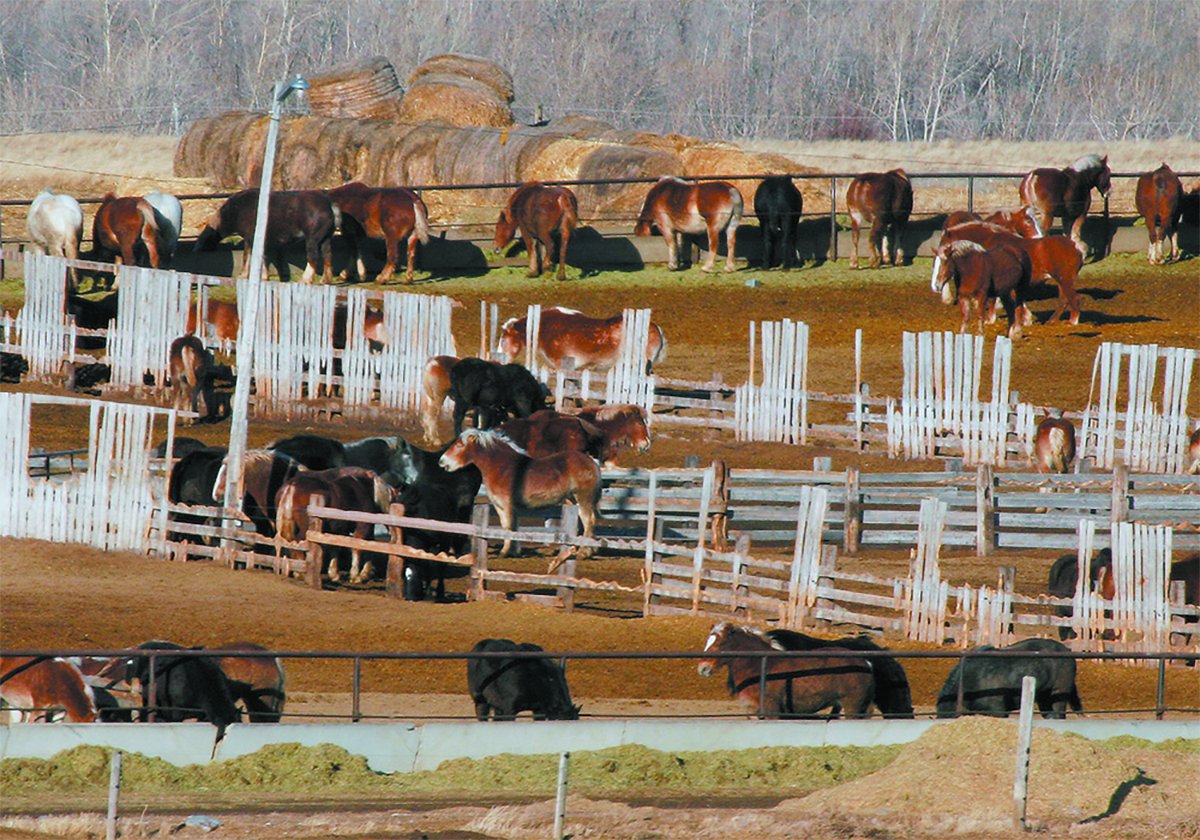RED DEER – An economic boom in Alberta has been dampened by a shortage of workers.
Finding good farm help is an even greater challenge because wages and working conditions are often perceived as better anywhere else.
Demographics are part of the problem, said Doug Barlund of Alberta Agriculture.
He recently presented a summary of an agricultural wage rate study to the Wild Rose Agricultural Producers annual meeting in Red Deer.
Younger people typically work on farms, but a lower birthrate is shrinking the province’s 15-24 year age group.
Read Also

Canada’s slaughter horse industry lacks transparency
The lack of clear reporting and public access to data keeps the industry largely hidden, leaving questions about humane treatment and traceability unanswered.
Baby boomers heading for retirement make up the workforce’s largest bulge.
“As time goes on we might have to change that slogan from ‘hire a student’ to ‘hire a senior,’ ” Barlund said.
The study found that the resource industry, which includes oil and gas, pays the best wages at more than $22 an hour, while agriculture and the service sector pay the lowest wages at less than $10 an hour.
Finding information on jobs, wages and hours of work was difficult because farm labor covers many types of work and responsibilities.
“If we are going to market agriculture as a growth industry … perhaps we need some clarity in the types of jobs that are available.”
The survey shows that an ordinary laborer on a poultry farm is typically paid $6.80 to $18 per hour, which works out to an average of $12.90 per hour. The average hours worked per week is 58.
A poultry farm manager or owner averages $12.30 per hour and works about 45 hours a week.
Most employers pay Employment Insurance and Canada Pension Plan contributions, but less than a quarter pay for accident or health insurance. More than 60 percent provide housing and some food. A few pay cash bonuses.
General workers in the swine industry are paid between $8.10-$17 per hour. Their work week averages 55 hours. About the same number receive benefits like housing, cash bonuses and health insurance.
Hog managers are paid between $16 and $20 per hour and work a 40-hour week.
General farm workers in the cattle industry get $9 to $16 an hour and work 53 hours a week. Some reported working 100 hours a week during busy seasons. Less than half received housing or other benefits.
A farm manager is paid $9 to $19 an hour. The average is $13.50 an hour. The work week is usually 55 hours, but many claim they work an average of 75 hours a week.
Burland said farm wages are not unreasonably low if the employer provides benefits like housing and food.
As well, most who receive free housing or other benefits such as a vehicle do not claim it as a taxable benefit.

















